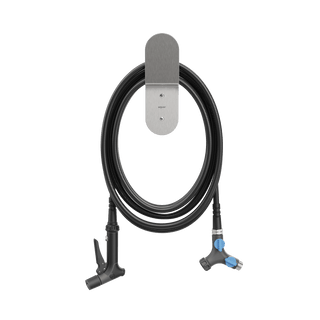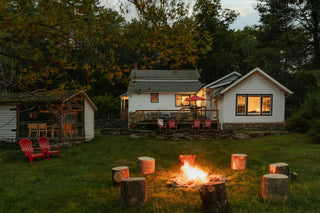Building Net Zero: Why It’s Usually Worth It

A net zero home, also known as a zero energy home, is a house designed to create as much energy as it consumes. In other words, a net zero home's energy use is equal to its energy production over the course of one year.
The home will draw electricity from the grid as needed during cooler months and at night, and it will generate renewable energy to offset that usage—often from solar panels. After a year, the net energy balance will be close to zero.
Is it worth building a net zero home?
Overall, yes, building a net zero home can be worth it. The value will depend on your goals, budget, and location.
A net zero home costs more to build upfront but pays off over time through energy savings, sustainability, and comfort. It's an investment in your energy independence as well as your home's long-term performance.

Pros to consider
Significant Energy Savings
Net zero homes typically reduce energy bills by 70-100%. With solar panels, you can even earn credits for excess energy sent back to the grid, depending on local policies. Advanced insulation, airtight construction, and energy-efficient windows, appliances, and lighting all minimize energy loss.
Long-Term Financial Return
The higher upfront costs (usually 5-10% more) are often offset in 5-10 years through reduced utility bills. Many can qualify for tax credits, rebates, or green financing programs—be sure to check your local policies.
Comfort & Health
Superior insulation and air sealing mean fewer drafts, quieter interiors, and more stable indoor temperatures. Advanced ventilation systems improve air quality indoors.
Sustainability
These homes significantly lower your carbon footprint by using energy and water more efficiently. Less goes to waste. By harnessing your own energy, you'll be less dependent on fluctuating energy prices and grid disruptions.
Higher Property Value
Energy-efficient homes often sell for more, and sell more quickly, than comparable homes. The desire for energy efficiency and independence is continuing to grow—a lot of homeowners are willing to pay more for these capabilities.
Cons to take into account
Higher Upfront Costs
A 5-15% premium can be expected compared to conventional construction. The majority of that cost is due to better insulation, higher-quality windows, and renewable systems. In other words, you get what you pay for.
Location Dependency
Sunny mild-climate regions, regions with high energy costs, and progressive energy policy states are areas where building a net zero home may be well worth it. Cold regions that don't receive much sun, densely populated areas with little to no room for solar potential, or areas with cheap electricity and weak incentives may not be conducive to net zero building. Take into account your budget and goals when deciding if building a net zero home is the best option for you.
Design Discipline
Net zero success depends on precise architectural planning and coordination among builders, HVAC specialists, and energy consultants. Not all parties may communicate well, so facilitating conversations and making sure all involved are on the same page is crucial.
The Bottom Line

For homeowners planning to stay in their new house for over a decade, the initial investment pays off in sustainability, lower energy bills, energy independence, and lasting comfort. If short-term affordability is important, a net zero ready home can be a smart choice. You can always install solar panels onto an efficient home later, as funds allow.











